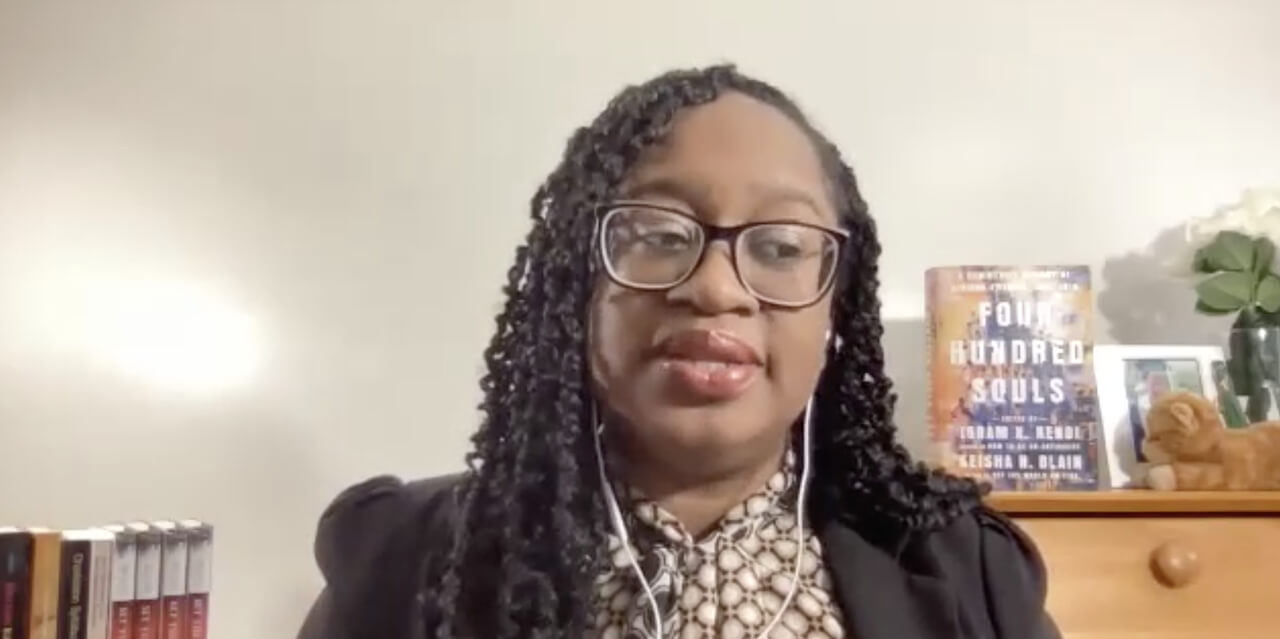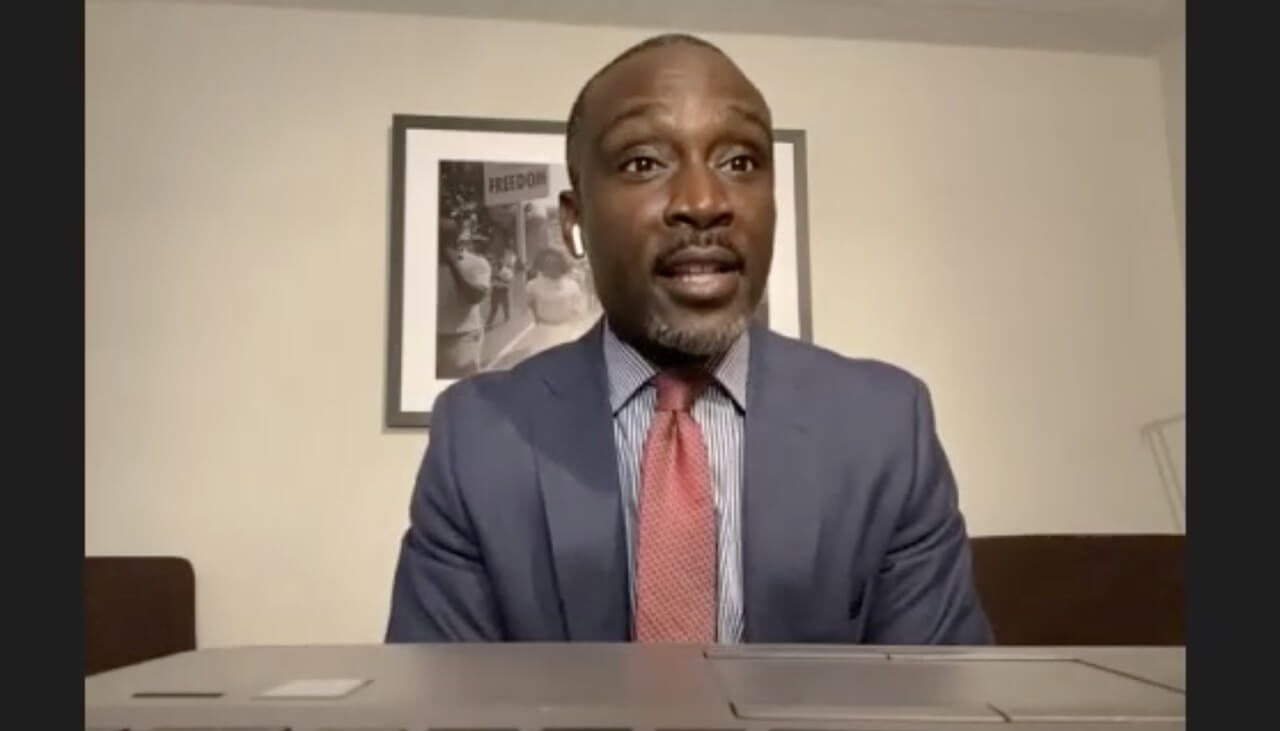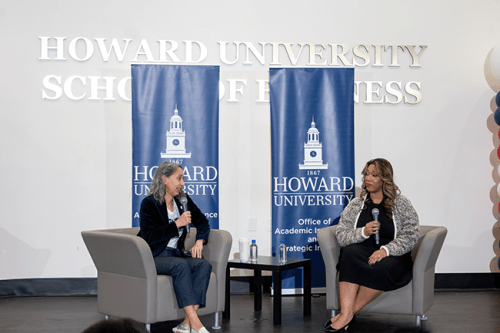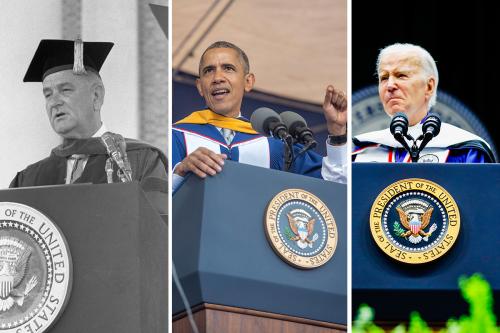 WASHINGTON – Keisha N. Blain, Ph.D. and Eugene Scott joined Donna Brazile for the 2020-2021 Gwendolyn S. and Colbert I. King Endowed Chair in Public Policy Lecture Series. Blain and Scott discussed the newly released #1 New York Times bestselling book, “Four Hundred Souls: A Community History of African America 1619-2019.”
WASHINGTON – Keisha N. Blain, Ph.D. and Eugene Scott joined Donna Brazile for the 2020-2021 Gwendolyn S. and Colbert I. King Endowed Chair in Public Policy Lecture Series. Blain and Scott discussed the newly released #1 New York Times bestselling book, “Four Hundred Souls: A Community History of African America 1619-2019.”
“The idea was to tell the history by bringing in as many perspectives as possible,” said Blain, who co-edited the book with Ibram X. Kendi. “This book was a rare opportunity to bring 90 Black writers together.”
“Four Hundred Souls” is a unique, one-volume community history of African-Americans. In the book, a total of 90 African-American writers provided historical accounts of the 400-year history of African slavery, segregation and resistance in the United States. Eighty writers and 10 poets share their reflections on this history through essays, short stories, poems and other techniques.
Scott, a contributor to the book, wrote about the National Negro Convention. He says many of the issues being discussed then concerning the future of Black America are still being discussed today.
 “As we think about voting rights, global relationships with Africa and Black Americans, and as we think about immigration issues related to Black immigrants coming to the states, it was really interesting to see how these conversations are still ongoing and how these National Negro Conventions were precursors to many of the gatherings we currently have to discuss the future of Black America like the National Urban League gathering, the NAACP gathering and NABJ,” said Scott. “I was just really intrigued to discover how much we’ve figured out and how much we still have to figure out in terms of where we’re going next.”
“As we think about voting rights, global relationships with Africa and Black Americans, and as we think about immigration issues related to Black immigrants coming to the states, it was really interesting to see how these conversations are still ongoing and how these National Negro Conventions were precursors to many of the gatherings we currently have to discuss the future of Black America like the National Urban League gathering, the NAACP gathering and NABJ,” said Scott. “I was just really intrigued to discover how much we’ve figured out and how much we still have to figure out in terms of where we’re going next.”
The conversation turned to current events, including uprisings in response to police killings of Black people, the January 6 insurrection on the U.S. Capitol and the government’s role in expanding rights for marginalized communities. Blain and Scott highlighted the many connections that the history covered in the book has in comparison to the current fight for social justice.
“For me, not only as a contributor, but as someone who loves history, in every chapter and every part of the book, you learn that Black people fought for their freedom, that Black people stood up and that Black people were willing to die,” said Brazile. “Not only for their own freedom and liberty, but also in terms of protecting the country itself and democracy.”
# # #
About Howard University
Founded in 1867, Howard University is a private, research university that is comprised of 13 schools and colleges. Students pursue more than 140 programs of study leading to undergraduate, graduate and professional degrees. The University operates with a commitment to Excellence in Truth and Service and has produced one Schwarzman Scholar, three Marshall Scholars, four Rhodes Scholars, 11 Truman Scholars, 25 Pickering Fellows and more than 165 Fulbright recipients. Howard also produces more on-campus African-American Ph.D. recipients than any other university in the United States. For more information on Howard University, visit www.howard.edu.
Media Contact: Misha Cornelius, misha.cornelius@howard.edu




